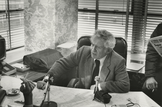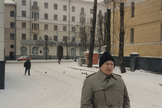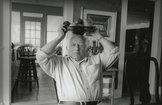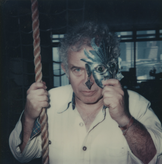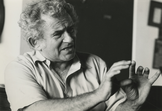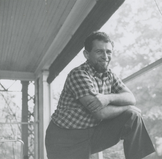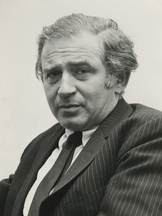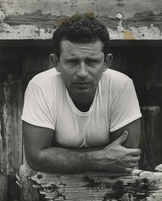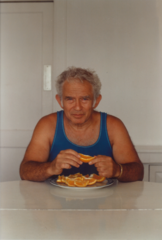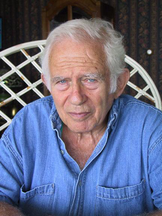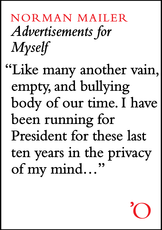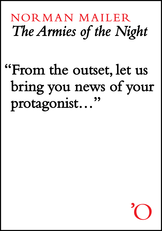Norman Mailer
Norman Mailer was born in Long Branch, New Jersey, and grew up in Brooklyn, New York. At the age of 16, he matriculated at Harvard University to study aeronautical engineering. After graduation, he was drafted into the army and served as an artilleryman in the Philippines, an experience that inspired his debut novel The Naked and the Dead. A gritty, realistic portrayal of the agonies of combat, the book resonated deeply with Americans in the years following World War II, topping the New York Times Bestseller list for eleven consecutive weeks and making Mailer a national celebrity. Critics hailed him as one of the great rising American writers of the post-war era.
Throughout his career, Mailer contributed more than thirty works of fiction and nonfiction to the American literary canon. Considered the innovator of the nonfiction novel, he received several prizes for his books, including the Pulitzer Prize and the National Book Award for The Armies of the Night, the National Book Award for nonfiction for Miami and the Siege of Chicago, and a second Pulitzer for Executioner’s Song. In 1955 he co-founded The Village Voice; 50 years later, he won the Medal for Distinguished Contribution to American Letters from the National Book Foundation. Mailer died in 2007.
Books By Norman Mailer
Advertisements for Myself
Advertisements for Myself, a diverse and freewheeling tour through Mailer’s early career, covers the many subjects with which he’d grapple for the rest of his life: sex, race, politics, literature, and the systems of power that shape American life. A playful, unclassifiable snapshot of American culture at the end of the fifties, the book is also a cornerstone of Mailer’s long and prolific career: “In this volume,” declared The New York Times in 1959, “Mr. Mailer, at 36, shows once again that he is the most versatile if not the most significant talent of his generation.”
 |
The Armies of the Night
Winner of the Pulitzer Prize and the National Book Award and a cornerstone of New Journalism, The Armies of the Night is not only a fascinating foray into that mysterious terrain between novel and history, fiction and nonfiction, but also a key chapter in the autobiography of Norman Mailer—who, in this nonfiction novel, becomes his own great character, letting history in all its complexity speak through him.
 |

